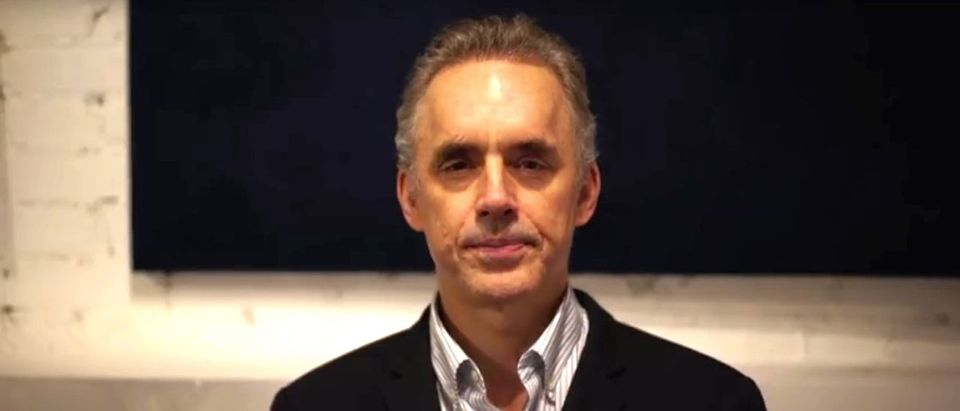Ever since Jordan Peterson became a household name, I’ve kept up with as much as I can that’s been written about him (like millions of others have). I’ve watched many of his videos, as well as his interviews with the press. I’ve read his articles. I purchased and read his bestselling book, 12 Rules for Life.
And here’s what I know for sure: Jordan Peterson cannot be put in a box. That’s why the media in general can’t stand him.
Peterson isn’t exactly conservative, per se, although his beliefs are grounded in tradition. But he’s not exactly liberal, either, although he is liberal-minded if we define the word properly. A true liberal is one who’s open to different ideas and opinions, true freedom of thought, and that does not in any way describe modern liberals, who’ve moved so far to the left they’ve fallen off a cliff.
Indeed, the true liberals today are conservatives. “As much as I don’t like to admit it,” notes commentator Dave Rubin in this video, “defending my liberal values has suddenly become a conservative position.”
The radical left Peterson is fighting back against used to be an extreme group. They’ve since become mainstream, and they reside in America’s most powerful sectors: in Hollywood, in the media, and on our university campuses. The latter is where Peterson focuses his attention. It is there where he began his crusade to undermine groupthink, that horrid scourge in our society that suggests there’s only one way to think: the way those on the left do.
Peterson speaks for the legions of Americans (and Canadians, and Europeans) who don’t fit snugly in either the conservative or the liberal camp. Rather, he speaks to that vast middle space between the two, where truth and reason live. To pigeonhole him politically is futile.
Yet Lord knows the media try. They call Peterson a “right-wing nut” or a member of the alt-right. That’s the goal of identity politics: to discredit those who question the status quo by marginalizing them. As the author of five countercultural books that do just that—question the status quo—I too have been labeled all sorts of things, ‘conservative’ being one. But I’m repeatedly told by readers who consider themselves liberal that my writing is just plain ’ole common sense.
Obviously, I agree. But common sense vanishes in a country that’s mired in identity politics or political correctness. (These are two sides of the same coin.) The middle-of-the-road values people used to share—marriage is good for society, males and females are different, etc.—have now become blasphemous concepts.
That’s what Bari Weiss tried to explain on MSNBC’s Morning Joe last week when discussing her article in The New York Times about the rise of Peterson and other “iconoclastic” thinkers. “We increasingly live in this era of that which cannot be said. Why is Jordan Peterson the most popular public intellectual in this country, and certainly in Canada at the moment, for saying things that are so basic?”
Basic, indeed—and so utterly reasonable, which speaks volumes about how far this nation has fallen. That’s what Peterson is trying to get across to anyone who’ll listen. His message—about psychology and evolution, about ethics and religion, about economics and lobsters—isn’t a political one but an existential one. It’s about why we’re here on this planet. It’s about what really matters in life and how we should go about living it. If his rhetoric sounds political, that’s only because the media are insistent upon making it so.
Case in point: When Peterson was interviewed by NBC’s Matt Bradley, Bradley was clearly hell-bent on a “gotcha” moment, much like Cathy Newman was (although Bradley’s tactics were different) in her infamous debate with Peterson. Desperate for Peterson to come clean and admit that he is, in fact, a right-wing nut, Bradley asks Peterson, with the same gravity one might ask a murderer if he did, indeed, commit murder, “Are you a radical right-winger?”
Peterson chuckled in his characteristic manner and explained to Bradley that “everyone to the right of the radical left wing is not a right winger…If you come out against the radical left, it’s not obvious where you sit on the political spectrum. You could sit anywhere on the political spectrum.”
Indeed.
Jordan Peterson has become a phenomenon not because he’s a closet radical Republican who’s invaded the Internet. He’s a phenomenon because he represents that vast middle space between the two—that area where rational, independent thought lives and that’s representative of most Americans. It is precisely this disconnect, the one between leftists in power and the American people, who represent an array of thought and opinion, that paved the way for Jordan Peterson.
Call him serious if you want. Call him depressing if you must. Just don’t call him political.
Suzanne Venker is the author of five books and a cultural critic who writes about marriage, relationships and gender politics. Her latest book, The Alpha Female’s Guide to Men & Marriage, was published in February 2017. Her website is www.suzannevenker.com.
The views and opinions expressed in this commentary are those of the author and do not reflect the official position of The Daily Caller.


